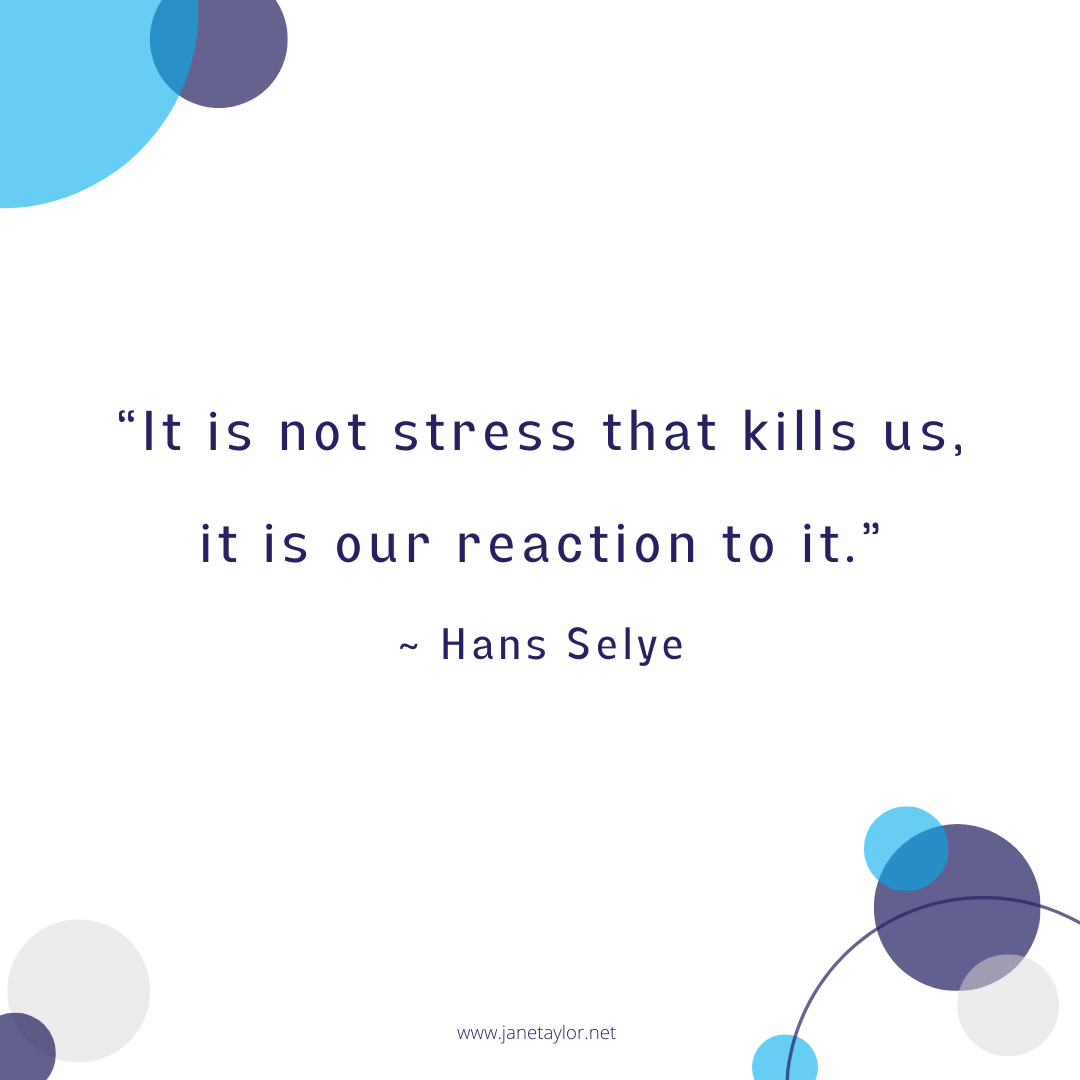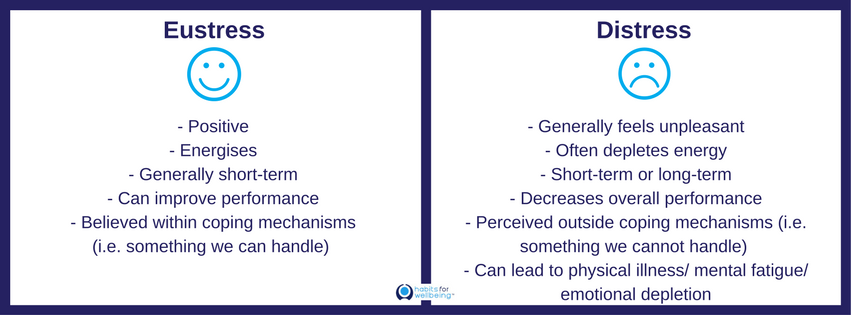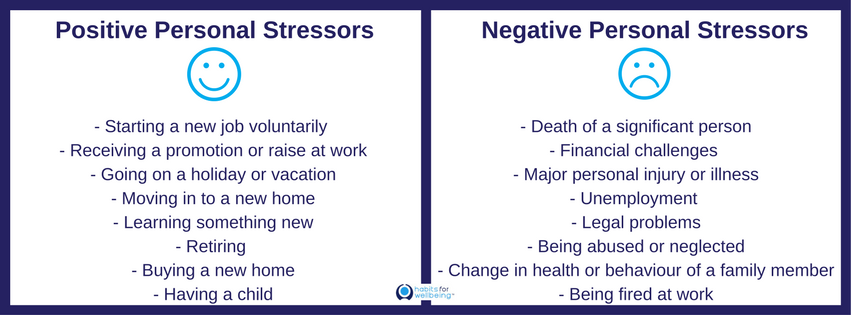Eustress vs Distress

Each of us have stress in our daily lives. How we experience that stress depends on how we choose to think about the stress, feel the stress and respond to the stress.
“It is how people respond to stress that determines whether they will profit from misfortune or be miserable.”
~ Mihaly Csikszentmihalyi
Eustress vs Distress
Stress is not always “bad” thing. Stress is subjective, so something that is stressful for you may not be stressful for someone else. Stress can motivate us to change habits and move us closer to our chosen dreams, and aspirations. If we felt no stress, we would not be compelled to act in ways that bring about conscious and meaningful change.
There are a few different types of stress we can experience, however essentially they fall in to two different categories – eustress and distress. What are some of the differences between eustress and distress?
Glad you asked have a look at the graphic below…

Some Examples of Eustress and Distress
As we manage stress differently, it is hard to categorise stress objectively. However, following is table that identifies a list of stressors that are typically experienced positively or negatively by people most of the time.

Are there any other positive and negative personal stressors you would add? If so, what are they? Feel free to share them below in the comments section.
Questions for Reflection –
Following are a couple of questions for reflection on stress.
- How do you typically respond to stressful events in your life?
- Do you allow yourself to sit with stress and use the stressful energy constructively? or Do you feel overwhelmed by stress and turn towards a state of panic or physical/emotional withdrawal?
Remember, change is a constant part of life and from every experience you can practice new ways of responding instead of reacting.
If you are ready to reclaim your courage and take the next step towards freedom and living wholeheartedly, why not join our Toolkit?
Page Reference –
I have had many people want to reference this page, so here is the correct reference. Thanks in advance for honouring my work 🙂
Taylor, J. (2017). Eustress vs Distress. [WWW] Available from: https://janetaylor.net/eustress-vs-distress/ [Accessed …….. ]
